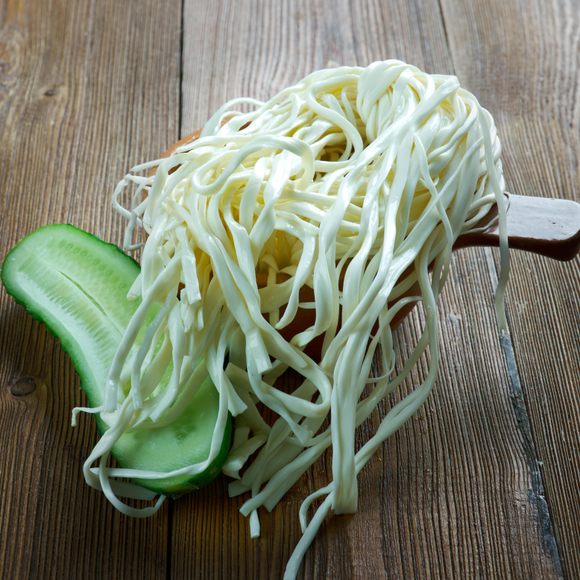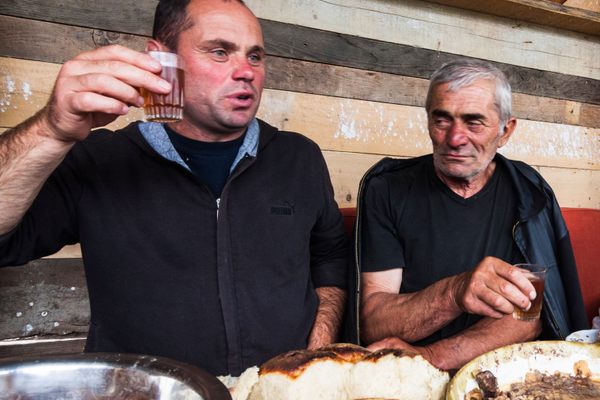Meats & Animal Products
Tenili
These rare, hand-pulled strands of cheese are making a comeback in southwestern Georgia.
In the mountainous historic Meskheti region of southwestern Georgia, you can tell how the locals perceive you from whether or not they serve you cheese. If they bring out the tenili, consider yourself very fortunate, for only those held in the highest regard will be offered this rare, hand-pulled cheese.
Although Georgia has a rich and diverse history of cheesemaking, under Soviet rule, the country was reduced to the production of just four kinds of cheese. Only a handful of Meskhetian families continued to make tenili for private consumption. In recent years, though, artisanal cheesemakers have begun scouring what is now the Samtskhe-Javakheti region (which includes Meskheti) for practitioners of Georgia’s ancient cheese traditions to try and revive production of delicacies such as tenili.
Tenili is made using sheep’s or cow’s milk that is rich in fat content. After boiling the curds until they become a soft, limber mass of cheese, the cheesemaker—usually a woman from one of the few families still making tenili—will hand-pull it into a heap of fine, yarn-like strands. This cheesy yarn then gets soaked in cold, salted water and dried on a pole for a few hours to a few days. The maker then dips the strands in heavy cream and presses them into clay pots (called “tenili”), covering everything with a cloth. After a few days, she’ll turn the pot over so any remaining water seeps out.
In these clay pots, tenili can be aged up to a year. Preserved and cherished like a family jewel, it’s meant to be taken out and enjoyed on very special occasions. It has a pleasant, mild smell and an almost spicy, acidic kick.
Written By
 Rohini Chaki
Rohini Chaki














